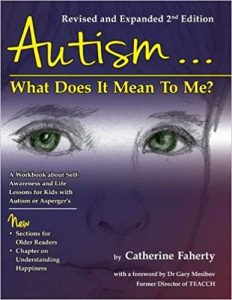Building Executive Function Skills in Elementary School Students
 Teachers can help students improve skills like inhibitory control and cognitive flexibility by explicitly connecting them to popular games—and then letting students play. Read more ›
Teachers can help students improve skills like inhibitory control and cognitive flexibility by explicitly connecting them to popular games—and then letting students play. Read more ›
 Teachers can help students improve skills like inhibitory control and cognitive flexibility by explicitly connecting them to popular games—and then letting students play. Read more ›
Teachers can help students improve skills like inhibitory control and cognitive flexibility by explicitly connecting them to popular games—and then letting students play. Read more ›
 You’ve signed up for classes, you’ve learned your way around campus — and now, you’ve got to make sure you survive all the way to graduation. Read more ›
You’ve signed up for classes, you’ve learned your way around campus — and now, you’ve got to make sure you survive all the way to graduation. Read more ›
 Spurred by brain research that has shown a strong connection between the social and emotional skills of students and their cognitive development, more schools across the country are emphasizing “soft skills” such as communication, collaboration, self-awareness and problem-solving as part of a trend known as social and emotional learning, or SEL. Read more ›
Spurred by brain research that has shown a strong connection between the social and emotional skills of students and their cognitive development, more schools across the country are emphasizing “soft skills” such as communication, collaboration, self-awareness and problem-solving as part of a trend known as social and emotional learning, or SEL. Read more ›
 More teens and young adults — particularly girls and young women — are reporting being depressed and anxious, compared with comparable numbers from the mid-2000s. Suicides are up too in that time period, most noticeably among girls ages 10 to 14.
More teens and young adults — particularly girls and young women — are reporting being depressed and anxious, compared with comparable numbers from the mid-2000s. Suicides are up too in that time period, most noticeably among girls ages 10 to 14.
These trends are the basis of a scientific controversy. Read more ›
 Teachers and parents all over the country are noticing an increase in mental health issues, including anxiety, among students. Parents and educators are scrambling to understand why kids seem to be more anxious and how to help them. Read more ›
Teachers and parents all over the country are noticing an increase in mental health issues, including anxiety, among students. Parents and educators are scrambling to understand why kids seem to be more anxious and how to help them. Read more ›
 Autism: What Does It Mean to Me? is a tool for autistic individuals, their parents and families, and professionals. Read more ›
Autism: What Does It Mean to Me? is a tool for autistic individuals, their parents and families, and professionals. Read more ›
 Our 7-year-old was recently diagnosed with autism spectrum disorder. He’ll be moved to a new classroom and begin ABA therapy in the next few weeks. Can you give us some advice on helping him understand what’s going on?
Our 7-year-old was recently diagnosed with autism spectrum disorder. He’ll be moved to a new classroom and begin ABA therapy in the next few weeks. Can you give us some advice on helping him understand what’s going on?
To answer this question, Autism Speaks experts, education specialist Lucia Murillo and social worker Lindsay Naeder, share some guidance on how to conduct the conversation based on your child’s perspective. Read more ›
 Explosive behavior. Rage. Tantrums. Meltdowns. Aggression. Property destruction.
Explosive behavior. Rage. Tantrums. Meltdowns. Aggression. Property destruction.
Having a child with any of these behaviors can be a challenging experience. And while all children tend to act out from time to time, children with disruptive behavior disorders have persistent patterns of behavioral challenges that occur across settings and are much more extreme than other kids their age. Read more ›
 This fact sheet from the Substance Abuse and Mental Health Services Administration (SAMHSA) offers tips for preventing and managing stress when dealing with the effects of trauma, mass violence, or terrorism. It lists tips for relieving stress and seeking professional help. Read more ›
This fact sheet from the Substance Abuse and Mental Health Services Administration (SAMHSA) offers tips for preventing and managing stress when dealing with the effects of trauma, mass violence, or terrorism. It lists tips for relieving stress and seeking professional help. Read more ›
 High school teens spend most of their time attending classes, participating in extracurricular activities and doing homework. There is constant pressure to do everything and do it well to prepare for a successful career or higher education after high school. This can cause a lot of stress.
High school teens spend most of their time attending classes, participating in extracurricular activities and doing homework. There is constant pressure to do everything and do it well to prepare for a successful career or higher education after high school. This can cause a lot of stress.
Use these tips to take a break from the barrage of constant communication and manage your stress in a healthy way. Read more ›